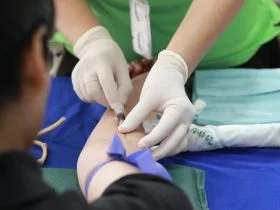The shadow of medical malpractice looms as a legitimate issue for patients in the complex world of healthcare, where trust is vital and the stakes are high. While medical professionals dedicate their lives to healing, errors and lapses can occur, leaving patients grappling with the aftermath. In this guide, we will explore crucial steps to shield yourself from becoming a victim of medical malpractice, ensuring that your journey through the healthcare system is not only one of healing but also safeguarded against potential pitfalls.
Reader's Roadmap
Understanding Medical Malpractice
Before diving into preventive measures, it’s imperative to understand what constitutes medical malpractice. Simply put, medical malpractice occurs when a healthcare professional deviates from the standard of care, resulting in harm or injury to the patient. This deviation could be due to negligence, misdiagnosis, surgical errors, or even improper treatment. Recognizing the signs and understanding your rights is the first step in protecting yourself.
Building a Strong Foundation: Choose Your Healthcare Provider Wisely
Your journey to avoiding medical malpractice begins with a careful selection of your healthcare provider. Research and choose a reputable hospital or clinic, one with a track record of patient satisfaction and a team of experienced professionals. Don’t hesitate to seek recommendations from friends, family, or online reviews. A well-informed decision at the outset significantly reduces the risk of encountering malpractice issues down the line.
The Power of Communication: Establish a Relationship with Your Healthcare Provider
Effective communication is the linchpin of any successful doctor-patient relationship. Ensure that your healthcare provider not only listens attentively to your concerns but also takes the time to explain your diagnosis and treatment plan in a comprehensible manner. An informed patient is better equipped to spot potential red flags and actively participate in their healthcare decisions, mitigating the risk of misunderstandings or oversights.
Stay Informed: Educate Yourself About Your Condition and Treatment
Knowledge is a powerful tool in the realm of healthcare. Take the initiative to educate yourself about your medical condition, potential treatment options, and associated risks. This proactive approach not only empowers you to make informed decisions but also serves as a safeguard against unnecessary procedures or treatments. Remember, a well-informed patient is an active participant in their healthcare journey.
Vigilance in the Face of Diagnosis and Treatment Plans
When it comes to medical malpractice, misdiagnosis is a significant contributor to adverse outcomes. Be vigilant during the diagnostic phase, seeking second opinions if necessary, especially for serious or complex conditions. Similarly, when presented with a treatment plan, don’t hesitate to question the proposed course of action. A collaborative approach to decision-making ensures that all aspects of your health are considered.
Legal Safeguards: The Importance of Hiring a Competent Attorney
In the unfortunate event that you suspect you’ve been a victim of medical malpractice, securing legal representation is paramount. Medical malpractice exists when a health care provider violates the standard of care, and that violation causes an injury to a patient as seen on the https://www.duffyduffylaw.com/about-us/ website. A seasoned medical malpractice attorney can be your strongest ally, navigating the complex legal terrain and ensuring that your rights are protected. They possess the expertise to assess the merit of your case, gather evidence, and advocate on your behalf. The right attorney can make all the difference in securing justice and compensation for the harm you’ve endured.
Thorough Documentation: Keep a Record of Your Medical Journey

Thorough documentation of your medical journey is a cornerstone in safeguarding yourself against the potential pitfalls of medical malpractice. This practice involves maintaining a detailed and organized record of every aspect of your healthcare experiences, from initial consultations to prescribed treatments and follow-up appointments. A comprehensive record not only serves as a personal reference but also acts as a crucial source of evidence in the event of suspected malpractice. Could you include details such as dates, descriptions of symptoms, diagnoses, prescribed medications, and any communication with healthcare professionals? With the advent of digital tools, individuals can leverage apps or online platforms to streamline the documentation process, ensuring accessibility and accuracy. This proactive approach not only aids in better communication with healthcare providers but also empowers you to spot inconsistencies, track progress, and, if necessary, provide a solid foundation for any legal recourse. Thorough documentation transforms your medical journey into a tangible narrative, placing the power of information squarely in your hands.
Seeking Redress: Reporting Incidents of Medical Malpractice
If you suspect medical malpractice, don’t hesitate to report it to the relevant authorities. Many countries have medical boards or agencies responsible for overseeing the conduct of healthcare professionals. Your report not only safeguards others from potential harm but also contributes to the larger effort to maintain the integrity of the healthcare system.
In the labyrinth of healthcare, where uncertainties may arise, empowering yourself with knowledge and a proactive approach is your best defense against medical malpractice. By carefully choosing your healthcare provider, fostering open communication, staying informed, and seeking legal representation when needed, you can navigate the complex landscape of healthcare with confidence. Remember, your health is your most valuable asset, and ensuring its protection is a shared responsibility between you and your healthcare providers.







Leave a Reply
View Comments